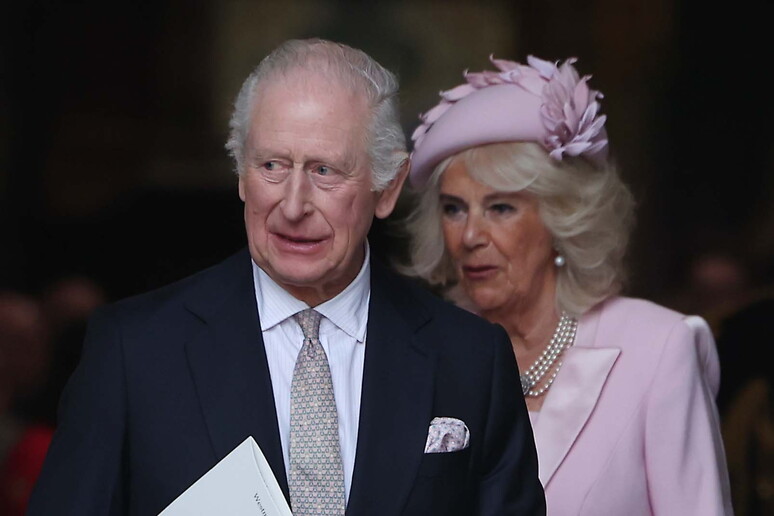
The Crown’s Crucible: When Mortal Vulnerability Collides with Immortal Duty
As whispers intensify around the health of a reigning monarch, the British Crown finds itself in an unwelcome spotlight, forcing a nation to confront the hidden costs of inherited power and the profound human complexities masked by centuries of tradition.
by Ari Steindwelder 9 June 2025
The ancient machinery of the British monarchy, an institution meticulously crafted from centuries of tradition and unwavering public spectacle, now grinds forward under the shadow of unsettling whispers. King Charles III’s health, shrouded in official discretion and the terse confirmations from Buckingham Palace, has become a focal point for intense global speculation. While a cancer diagnosis has been acknowledged, the deliberate opacity surrounding its severity and prognosis has inevitably fueled a relentless tide of rumors, including the chilling suggestion of an “incurable” condition. This calculated ambiguity, whether intended to protect privacy or manage public perception, invariably pulls the intricate tapestry of royal succession into stark relief, fixing an unwavering gaze upon the prepared figures of Prince William and Catherine, the Princess of Wales.
At the heart of this unfolding drama lies a profound ethical paradox: the inherent tension between the fundamental human right to privacy, especially concerning personal health, and the relentless, all-encompassing demands of public duty placed upon a sovereign. How much of a monarch’s personal suffering belongs to the public domain? The institution’s commitment to continuity and stability is paramount, yet its very survival often hinges on maintaining a facade of inscrutability. This ethical tightrope walk often means individual human vulnerabilities are subsumed by the monumental weight of the Crown, raising critical questions about the compassion and transparency afforded to those who serve at such an elevated, yet deeply personal, cost.
For Prince William, the heir apparent, and his wife, Catherine, the Princess of Wales, the King’s health crisis translates into an accelerated immersion into a destiny long foretold but now seemingly fast-tracked. Their increasingly prominent public engagements are not merely ceremonial duties; they are rehearsals for a role laden with immense psychological and emotional burdens. The unspoken question hangs heavy: what is the human toll of being perpetually “ready” for an unscheduled ascension to a throne that demands every fiber of one’s being? Their lives, meticulously choreographed for public consumption, offer little respite from the relentless expectations, probing the very essence of human resilience when private grief must be performed as public stoicism.
The media’s relentless gaze, a constant companion to the Royal Family, intensifies to an almost predatory focus during such moments of vulnerability. Every carefully worded statement, every fleeting public appearance, becomes fodder for exhaustive dissection, scrutinised for the faintest clue regarding the King’s condition or the precise mechanics of succession. This dynamic raises critical questions about the ethical responsibilities of those who disseminate information: when does the public’s understandable fascination with its head of state cross into an intrusive violation of individual privacy? The ongoing saga of the monarchy, a curious blend of archaic reverence and contemporary obsession, continues to captivate, yet it simultaneously exposes the raw human element beneath the gilded facade, compelling a reflection on the very nature of inherited power in an age that supposedly champions individual autonomy.
As the world awaits further updates, the current interregnum serves as a poignant reminder that even figures elevated to the pinnacle of public duty are ultimately mortal. The unfolding narrative invites a deeper contemplation of the modern monarchy’s place in a democratic world: its enduring appeal, its sometimes perplexing opaqueness, and the profound human sacrifices demanded of those born into its unique and unforgiving crucible. The Crown’s next chapter, born from personal vulnerability, will undoubtedly force a collective reckoning with the true weight of its gold.
#KingCharles #RoyalFamily #Monarchy #RoyalSuccession #PublicDuty #PrivateLife #MediaEthics #InheritedPower #HumanVulnerability #BritishRoyals